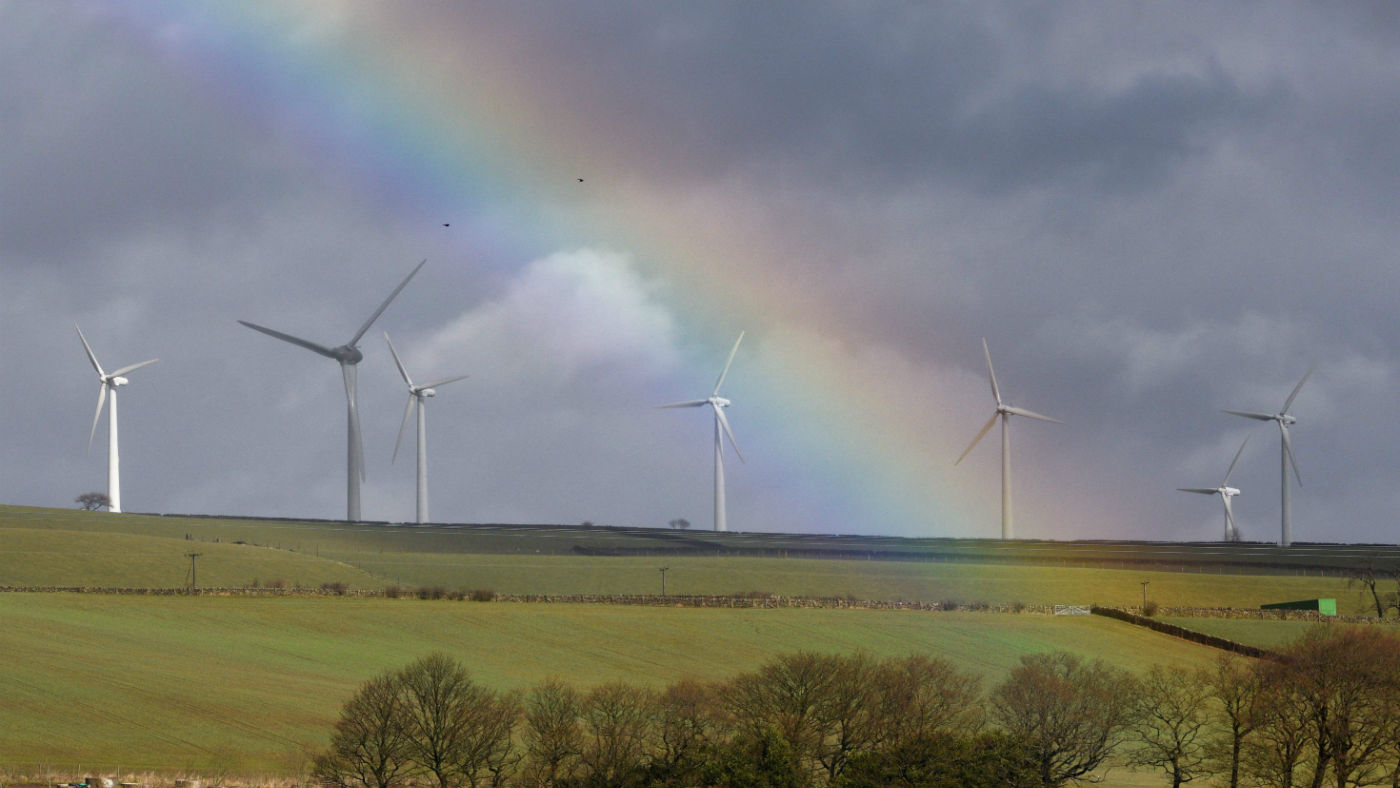Green shoots of recovery: CBI says climate action can spur UK economy
Government urged to create green jobs and fast-track net-zero emissions goal

A free daily email with the biggest news stories of the day – and the best features from TheWeek.com
You are now subscribed
Your newsletter sign-up was successful
The UK must seize the opportunity to create green jobs and boost the economy by becoming a “global leader” in the fight to tackle climate change, Confederation of British Industry (CBI) director-general Carolyn Fairbairn has urged.
According to newly released data from the Office for National Statistics (ONS), a total of 695,000 payroll jobs were lost in the first five months of the coronavirus pandemic. Unemployment rose from 3.9% to 4.1% in the three months to July, with the total number of people out of work hitting 1.4 million.
And the jobless rate “is still yet to be fully illustrative of the economic crisis, with the Treasury’s soon-to-end furlough scheme helping keep the numbers down”, says Sky News.
The Week
Escape your echo chamber. Get the facts behind the news, plus analysis from multiple perspectives.

Sign up for The Week's Free Newsletters
From our morning news briefing to a weekly Good News Newsletter, get the best of The Week delivered directly to your inbox.
From our morning news briefing to a weekly Good News Newsletter, get the best of The Week delivered directly to your inbox.
But CBI chief Fairbairn insists that the government can boost the post-pandemic economy through measures to tackle the climate change crisis.
Launching the industry body’s “Green Recovery Roadmap”, she said: “For so many, this feels like a time of fiercely competing goals. The world faces two seemingly separate yet fundamental problems. Covid-19, the biggest health crisis in living memory, and climate change, the defining challenge of the modern era.
“But they are not separate. The response to one affects success on the other. And the defining question is, how does the UK use this moment to rebuild our economy and the greener and stronger world we want to return to?”
Pole position in green tech
A free daily email with the biggest news stories of the day – and the best features from TheWeek.com
Britain set a target last year to reach net-zero emissions by 2050, but the UK economy is now “suffering from the effects of measures designed to slow the spread of the coronavirus”, says Reuters.
Yet despite the financial fallout of the pandemic, Fairbairn argues that as host nation of the 26th UN Climate Change Conference (COP26), to held in Glasgow in November next year, the UK should fast-track this goal to become net-zero.
Speaking at the CBI’s first virtual Net-Zero Conference yesterday, she said: “Business has been promised and is waiting for the government’s climate blueprint - the Energy White Paper, National Infrastructure Strategy, as well as plans for the decarbonisation of transport, heat and buildings.
“Enabling firms to strike ahead with their investment plans for a net-zero future with confidence. There’s no more powerful way to unlock private investment for the UK and set the agenda and pace of COP26 negotiations.
“The UK is in pole position to lead the world in green tech - hydrogen, carbon capture and storage. We have the science, ambition and expertise to succeed.
“As COP26 chair and holder of the G7 presidency next year, the UK has a unique opportunity to prove itself a global climate leader post-Brexit, securing ambitious international commitments and taking action towards our own net-zero transition.
“Together, business and government can lay the foundations for a strong, sustainable future. Not just for the UK, but through our global leadership, beyond our shores as well. A to-do list for this generation to pass on a better world to the next.”
Kickstart the economy
The CBI has highlighted six key priorities to “reignite business investment, create green jobs and kickstart a sustainable economic recovery” post-pandemic and post-Brexit.
- Accelerate the delivery of electric vehicle (EV) charging points and introduce a net-zero mobility credit scheme- Lift the cap on auctions for renewable power and introduce a financing model to encourage domestic and international business investment in new nuclear capacity- Become a world leader in carbon capture, utilisation and storage (CCUS) technology- Provide at least £1bn of government funding for hydrogen testing programmes- Create an office for sustainable aviation fuels to secure the development of low-carbon alternatives, and commit £500m of matched public-private funding (£1bn in total) to support the UK’s first commercial sustainable fuel plant- Deliver jobs and energy savings by retrofitting homes and buildings to be more energy efficient, and switch to low-carbon heating.
Mike Starling is the former digital features editor at The Week. He started his career in 2001 in Gloucestershire as a sports reporter and sub-editor and has held various roles as a writer and editor at news, travel and B2B publications. He has spoken at a number of sports business conferences and also worked as a consultant creating sports travel content for tourism boards. International experience includes spells living and working in Dubai, UAE; Brisbane, Australia; and Beirut, Lebanon.
-
 5 calamitous cartoons about the Washington Post layoffs
5 calamitous cartoons about the Washington Post layoffsCartoons Artists take on a new chapter in journalism, democracy in darkness, and more
-
 Political cartoons for February 14
Political cartoons for February 14Cartoons Saturday's political cartoons include a Valentine's grift, Hillary on the hook, and more
-
 Tourangelle-style pork with prunes recipe
Tourangelle-style pork with prunes recipeThe Week Recommends This traditional, rustic dish is a French classic
-
 Why the catastrophe bond market is growing
Why the catastrophe bond market is growingThe Explainer The bonds pay for climate change disaster damages
-
 What's Jeff Bezos' net worth?
What's Jeff Bezos' net worth?In Depth The Amazon tycoon and third richest person in the world made his fortune pioneering online retail
-
 Can the UK avoid the Trump tariff bombshell?
Can the UK avoid the Trump tariff bombshell?Today's Big Question President says UK is 'way out of line' but it may still escape worst of US trade levies
-
 Five years on, can Labour's reset fix Brexit?
Five years on, can Labour's reset fix Brexit?Today's Big Question Keir Starmer's revised deal could end up a 'messy' compromise that 'fails to satisfy anyone'
-
 Why are home insurance prices going up?
Why are home insurance prices going up?Today's Big Question Climate-driven weather events are raising insurers' costs
-
 Christmas trees: losing their magic?
Christmas trees: losing their magic?In the Spotlight Festive firs are a yuletide staple but are their days numbered?
-
 The ocean's blue economy is growing. Can the tide continue to rise?
The ocean's blue economy is growing. Can the tide continue to rise?The Explainer The big blue is bringing in the green
-
 'Brain drain' fear as record numbers leave New Zealand
'Brain drain' fear as record numbers leave New ZealandUnder The Radar Neighbouring Australia is luring young workers with prospect of better jobs